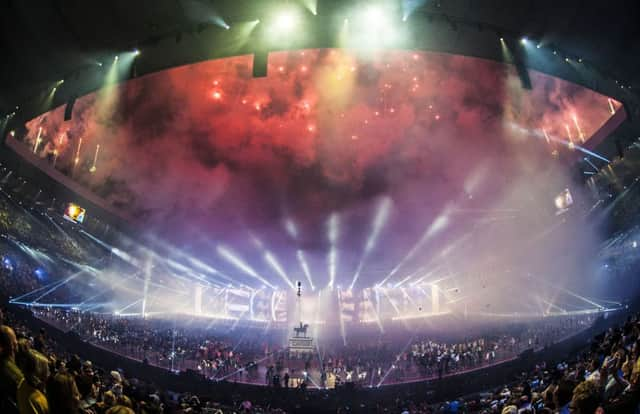Glasgow Commonwealth Games legacy just a start


THE Glasgow Commonwealth Games ended a year ago and initial assessments of legacy have now been published. Last week, the Scottish Government published its post games legacy evaluation report. Headlines from the report included:
The Games enjoyed widespread public support, it was run on time and to budget. Partnership working was a key success factor.
Advertisement
Hide AdAdvertisement
Hide AdThe event had a large GVA (Gross Value Added) economic and employment impact, more than half of which was captured by Glasgow. Investment in facilities has already yielded a further 45 national and international events. Three-quarters of (so-called Tier 1) contracts were awarded to Scottish business and it is estimated than 11,000 young people benefited across Scotland from related employability schemes.
Alongside facilities infrastructure, there were more than 40 legacy programmes operating in Glasgow’s east end, as well as the complementary activities of the Clyde Gateway urban regeneration company and the spillovers associated with the M74 extension. The separate GoWell East study in the east end of Glasgow reported improved responses on neighbourhood change, quality of sports facilities and feelings of safety.
The new venues both supported local use (through early opening) and facilitated the city’s ability to compete for future events. While the short run impact on elite athletes was clear from the performance by Team Scotland and there are some indicators of wider increased sports activity, we wait to see what the long term impact is both in terms of elite performance and wider participation.
Surveys of local residents and volunteers suggested support for the Games and belief in long term positive impacts including interest in further volunteering. GoWell East noted local resident inconvenience associated with volume of people, transport and security but more than three-quarters of people said it was nonetheless worth it.
Glasgow 2014 had a large scale cultural programme that extended across Scotland, which was both a successful festival during the Games and over the year represented a “step change”, so much so that it will be a formal part of future Commonwealth Games bidding from 2022 onwards.
However, it is important also to note the Scottish Government’s conclusions. Mega-events like Glasgow 2014 are “not a panacea for long run social and economic challenges” and that a “concerted and sustained focus by partners, embedding legacy outcomes into long term efforts, will be critical in achieving many outcomes” (p.8). But at the same time a striking feature of the Glasgow approach has been the unique commitment to planning, evidencing and incorporating research on legacy throughout the process. If the long-term results turn out not what to be what one might hope, we will at least have better data, a clearer sense why this is so and opportunities to learn lessons. There has, of course, also been criticism of Glasgow 2014 and legacy claims more broadly. This is often to do with lack of belief in post-industrial city regeneration strategies that prioritise event funding and scepticism about the social returns that such strategies generate, particularly for local residents who, it is argued, may not be full participants or indeed ultimate beneficiaries. Over the next few years there will be transparent evidence, rigorous research and debate around the longer term benefits associated with Glasgow 2014. However, the complexity and multi-dimensionality of legacies from 2014 and the diverse set of indicators of success or failure, should give us all pause when judging the overall impact in a sentence or a soundbite.
We have set up a legacy research network to explore international sporting and cultural mega events and ask what they can and cannot do to lever longer term social and economic development of cities. How can the higher education sector maximise its civic role and contribute to understanding and building on the lessons and evidence from 2014 and its legacies? Every city’s trajectory is different and Glasgow’s journey is unique. However, the scope to share knowledge, learning and evidence from sporting and cultural events internationally remains considerable if we can bring policy, practice, cities and academics together.
• Ken Gibb, Policy Scotland, University of Glasgow